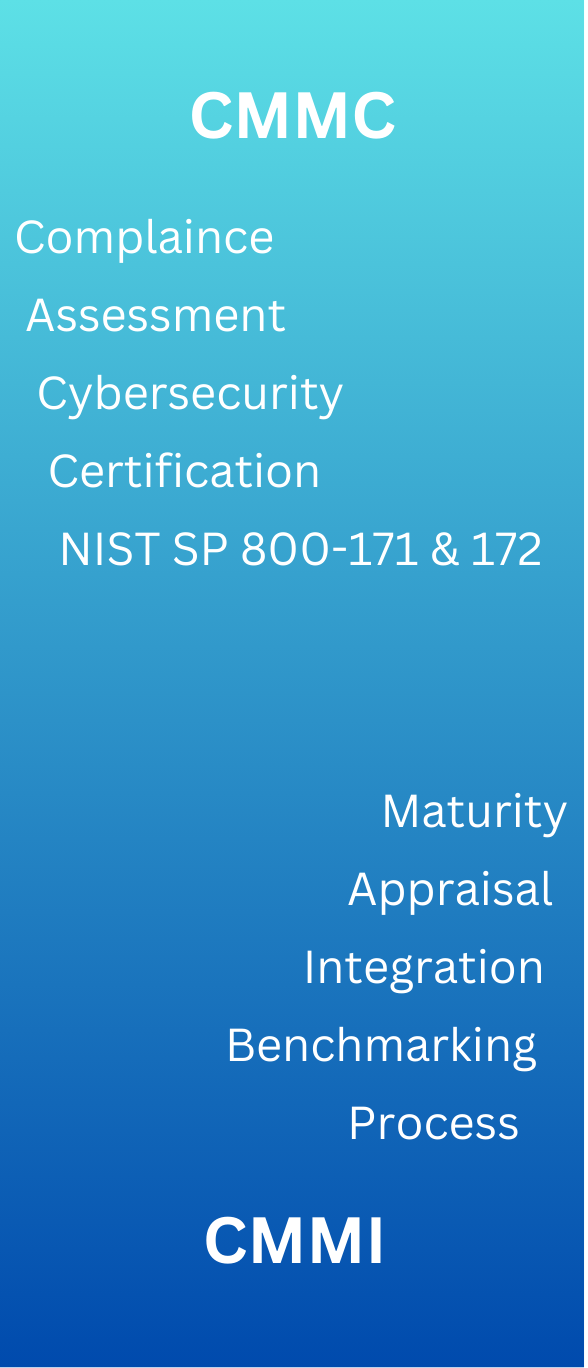CMMC & CMMI
The Cybersecurity Maturity Model Certification (CMMC) and the Capability Maturity Model Integration (CMMI) are both maturity models but they serve different purposes and target different aspects of organizational development.
CMMC focuses specifically on cybersecurity within the defense industrial base. It is designed to ensure that defense contractors have the appropriate levels of cybersecurity controls and processes in place to protect sensitive defense information. CMMC levels range from basic cybersecurity hygiene to advanced processes for reducing risk from sophisticated cyber threats.
CMMI, on the other hand, is a process level improvement training and appraisal program. Originally developed by the Software Engineering Institute (SEI) at Carnegie Mellon University, CMMI helps organizations improve their ability to develop, deliver, and maintain quality products and services. CMMI is not limited to cybersecurity but includes a broader scope of business processes, with a strong emphasis on software engineering, systems engineering, and process management.
Relationship between CMMC and CMMI:
Conceptual Overlap: Both models are structured around the concept of maturity levels, which define how well the processes of an organization are reliably and sustainably carried out.
Focus on Improvement: Both encourage organizations to improve their processes and capabilities systematically. CMMC does this in the context of cybersecurity, while CMMI focuses on overall business processes.
Adoption and Certification: Both require assessments to achieve certain certification levels that are recognized standards within their respective fields. Organizations may need to be appraised (in the case of CMMI) or audited (in the case of CMMC) to verify adherence to the respective levels.
While CMMC and CMMI can be complementary, they target different areas of organizational process and security maturity. An organization could be engaged with both models, applying CMMI to enhance their overall process maturity and CMMC to specifically bolster their cybersecurity practices as required for defense contracting.


